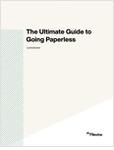Guest blogger, Grover Cleveland, author of Swimming Lessons for Baby Sharks: The Essential Guide to Thriving as a New Lawyer, gives law students tips on surviving (and winning) the on-campus interview game.
Not unlike speed dating, the on-campus screening interview process is a game of elimination. Your primary goal is the same: Make it to the next round. That means you need to avoid obvious errors that will trip up some (lose the nose piercing) and stand out from others who won’t make much of an impression. Here are important tips for succeeding in your lightning round of interviews:
• Own the room.Greet the interviewer confidently. It may sound corny, but don’t slouch. Look the interviewer directly in the eye and give a firm handshake (but not a bone-crunching one). And smile. If you exude enthusiasm, you are likely to get it back from the interviewer, which will help put you at ease.
• Ask strategic questions. You don’t have much time, so the more time the interviewer spends telling you about the firm, the less time you have to highlight your attributes. Ask questions that show that you researched the firm and that you are enthusiastic about working there. You should be ready to answer the “Why do you want to work here?” question with a response that is specific to each firm.
• Don’t ask about quality of life. Firms want to know what you can do for them. Initial interviews are not the time to address your personal concerns. For example, if you ask about work/life balance, the interviewer is likely to hear, “I am not interested in working hard.” Get that kind of information another way—or ask after you have an offer.
• Develop key messages. Come up with a list of points that you want to get across—regardless of the questions you are asked. Again, research the firm. If you understand the qualities that a firm values, you can craft answers that show you will be an asset to the firm. Whenever you can, provide specific examples of your skills and how they will benefit the firm.
• Listen closely to each question. If you are anxious, you may be tempted to blurt out the first answer that comes into your head or start talking before you have fully composed your answer. Don’t fall into those traps.
Pause for a second or two before answering. That may seem like an eternity, but it will become more natural if you practice. The time will give you a chance to compose your thoughts and review the key messages in your answer. If you don’t understand a question, ask for clarification. Don’t guess.
• Be memorable. Try to highlight an interesting fact or accomplishment—preferably one that took tenacity. If the interviewer remembers you as “the one who ran the marathon,” you are much more likely to make it to round two.
• Manage anxiety. Interviewing is anxiety-provoking for almost everyone. Remember, the interviewer was once in your chair. If you have done your research, practiced your answers and have your key messages down cold, you will be much more confident. And exercising will help banish adrenaline so it can’t mess with your mind.






